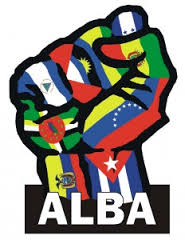
WTO pact passes after ALBA drops veto
Cuba, Venezuela, Bolivia and Nicaragua on Saturday refused to endorse a World Trade Organization trade reform agreement because it did not address the United States’ blockade of Cuba.
Hours later, after negotiating with the United States delegation, the four countries withdrew their vetoes. A compromise was struck in the form of a sentence upholding the principle of nondiscrimination in goods in transit.
The landmark “trade facilitation” pact, agreed upon at a WTO ministerial conference in Bali, promises to cut red tape and streamline customs and port procedures worldwide.
Representatives from 155 nations had agreed to the plan when the delegates from the four Latin American nations announced their displeasure. Cuba wanted the text to challenge the economic blockade the United States imposed on the island 51 years ago.
In addition, the Cuban delegate wanted language to prohibit WTO members from applying discriminatory measures to goods for any reason.
The four dissenting nations are members of ALBA, the Bolivarian Alliance for the Peoples of Our America.
The U.S. “embargo” — which, according to Cuba, has cost the country losses in excess of $1.15 trillion — has been condemned 22 times by the United Nations. President Obama said on Nov. 8 that the United States must continue to update its policies toward Cuba.
Apparently, Roberto Azevedo, the WTO’s Brazilian director, found language that proved satisfactory to both Washington and Havana, so the pact, known as “the Bali package,” could pass by unanimity. No details emerged about the behind-the-scenes negotiations.
Even if the four Latin American nations had persisted in blocking the deal, the WTO could have called for a majority vote to break the impasse, according to the Bloomberg News Agency. That would have been a rare step, the agency noted.
Failure to strike a multilateral deal at Bali would have undermined the WTO’s credibility and triggered regional or bilateral trade negotiations among members, said the London-based International Business Times.
(Front page photo of Roberto Azevedo, the WTO’s Brazilian director)

